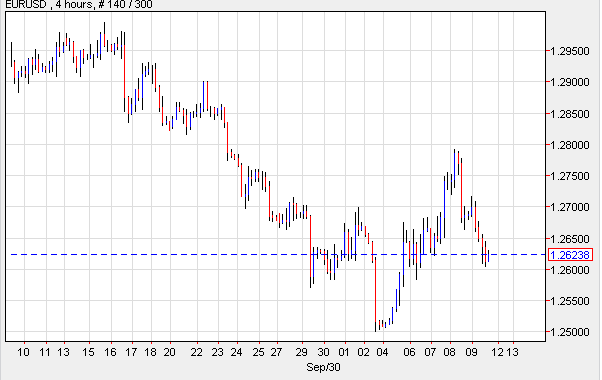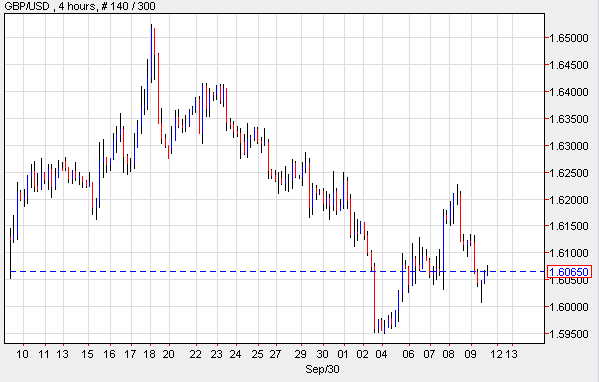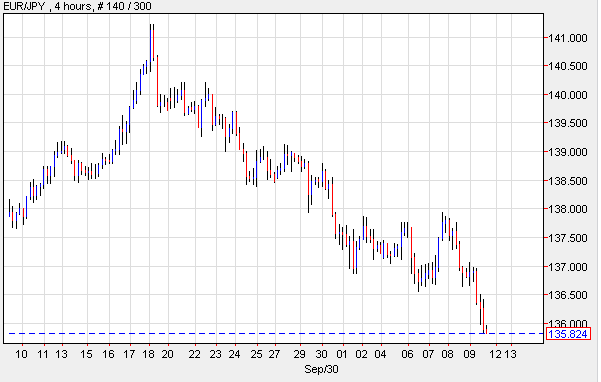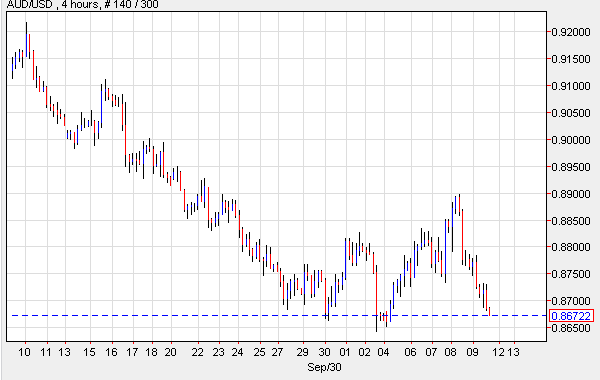The U.S. Dollar concluded the longest weekly surge since 1971, when the U.S. dropped the Bretton Woods system which pegged the greenback to the value of gold. The Federal Reserve expressed its concerns over the future of the U.S. economy as it could be sensitive to global economic challenges. Monetary authorities indicated that a delay in raising the key cash rate may be possible, should the slowdown of the global economy negatively impact domestic growth. Stanley Fischer, the Vice-Chairman of the central bank, suggested that if the U.S. economy shows signs of weakness, policy makers may wind down accommodation at a slower pace. Mr. Fischer spoke before the International Monetary Fund's yearly summit in Washington, D.C. His comments echoed those of other Fed officials who voiced their concerns about the U.S. being able to withstand the appreciation of the Dollar, and the weakness of the foreign economies. Such worries prompted the Standard & Poor's 500 Index to slump to the lowest level since May, and for oil prices to slip into a dovish market.
Gold prices dipped somewhat, but stayed above $1,200.00 a troy ounce. Futures for delivery in December traded at $1,221.70 a troy ounce on the New York Mercantile Exchange. In the past week, the precious metal climbed 2.35 percent, its first weekly rally in a month-and-a-half. Gold strengthened once the FOMC minutes were published. In the coming week, market traders will look out for important U.S. fundamentals, including releases on Retail Sales and Industrial Output. Investors hope to obtain further tips on whether the strength of the U.S. economy may be sufficient for the Monetary Authorities to raise the costs of borrowing money sooner than planned.
The Euro rose against the U.S. Dollar but remained under pressure as speculators believe that more stimulus could be implemented soon. While the Euro managed to rebound against the greenback, expert traders believe it's too soon to predict its trend. German metrics placed a lot of pressure on the currency, especially since it revealed that exports fell to the lowest level since 2009. As a result, the nation's trade balance plunged to 14.1 billion after posting at 23.5 billion Euros in the previous month. Many analysts say that the drop in exports had to do with the sanctions imposed against Moscow. However, Volker Trayer, who heads the Chamber of Commerce indicated that Germany's economy hit a peak and it doesn't come as a surprise that it would print a decline at this time. But the Association of German Industrialists say they're not optimistic about the prospects for Gross Domestic Product. The British Pound depreciated, but traded within a narrow range, shrugging off the Bank of England's meeting held on Thursday. Vince Cable, the British Business Secretary said that the Sterling remains overvalued, and there may be few factors blocking its gains. In the U.K., Construction activities went down unexpectedly, but the Pound benefitted from positive comments by the International Monetary Fund, which suggested that the U.K.'s economy will outperform all of the G-7 economies.
The Yen advanced against the majority of its peers upon the rise of risk aversion in the foreign exchange. Cuts in the global growth outlook by the International Monetary Fund, together with comments by the Feds suggesting that the global economies could put the U.S. economic improvement at risk prompted flight from risk assets.
And the Australian and New Zealand Dollars dropped as market traders sought out safe havens. The Kiwi and the Aussie edged to the downside on reports denoting an escalation of the Ebola crisis. This week, investors will pay close attention to reports from the G-20 as they're scheduled to convene in Australia, and to news from the International Monetary Fund and the World Bank who will also hold their meetings in the days ahead.
EUR/USD- Draghi Wants To Expand Balance Sheet
The EUR/USD traded mixed but gained slightly while Mario Draghi, the European Central Bank's President, indicated that the central bank wants to expand its balance sheet, and this may the last tool it has for boosting growth and staving the possibility of deflation. Delivering a speech in Washington, D.C., Mr. Draghi intimated that the ECB may not hike the costs of borrowing money until 2017; he defended the recently implemented monetary policies suggesting that the monetary authorities had to "act aggressively." He concluded by saying that the ECB doesn't have the power to fix the economy, and it should be a joint effort between the member nations. In the early part of the week, the International Monetary Fund indicated that the Euro region's economy may only expand 0.8 percent, and its inflation may stagnate at 0.5 percent.

GBP/USD- Risk Aversion Returns
The GBP/USD slumped as risk aversion took over market sentiment. While many blamed the blood moon, analysts say this increase in risk aversion had to do with the Fed's comments, suggesting that the U.S. economy may be sensitive to a global slowdown. The GBP/USD slumped for the most part of the week, while the British Business Secretary said that the currency is still too strong. The Sterling sustained the largest weekly hike in more than three months versus the greenback earlier in the week, despite disappointing announcements pointing to a decline in construction. In the meantime, sources say that the United Kingdom's Independence Party would like to see the U.K. withdraw from the E.U. The party secured its first seat in Parliament last week. On the data front, the Office for National Statistics revealed that the Trade Shortfall for goods and services remained at 1.9 billion Pounds in August, while it came in at 3.1 billion Pounds the prior month. The contraction came about as a result of a drop in imports, instead of a surge in exports.

EUR/JPY- Real Estate Slows Down
The EUR/JPY plunged as demand for safe haven benefitted the Japanese currency. But in Japan, the central bank pointed to the weakness in a number of sectors in the economy. Policy makers say that the real estate market and industrial production have slowed down. However, in a decision issued recently, the banks refrained from expanding stimulus. The Bank of Japan has remained positive on the outlook for the economy, and has indicated that the decline in business sentiment came about as a result of the sales tax hike of April. The monetary authorities blame the tax surge for the contraction in Gross Domestic Product in the second quarter, but believe that the effects of such increase are slowly dissipating.

AUD/USD- Employment Sector Posts Soft Data
The AUD/USD plummeted as risk aversion dominated sentiment. On Friday, releases indicated that the number of employed individuals in the South Pacific nation dropped by 29,700 in September, while analysts predicted they would go up by 17,600. The announcement revealed that the rate of Joblessness surged from 6.0 to 6.1 percent. And in the early part of last week, the Reserve Bank left the key cash rate unchanged, while reiterating that the AUD/USD is still overvalued and may dampen the nation's economic expansion. Metrics from the Commodities Futures Trading Commission published on Friday denote that market traders increased speculation that the AUD/USD could extend losses.

Today's Outlook
Today's economic calendar shows that the U.K. will report on BRC Retail Sales. The Yen will issue data on CGPI. Australia will announce NAB Business Confidence. And China may provide metrics on New Loans.
